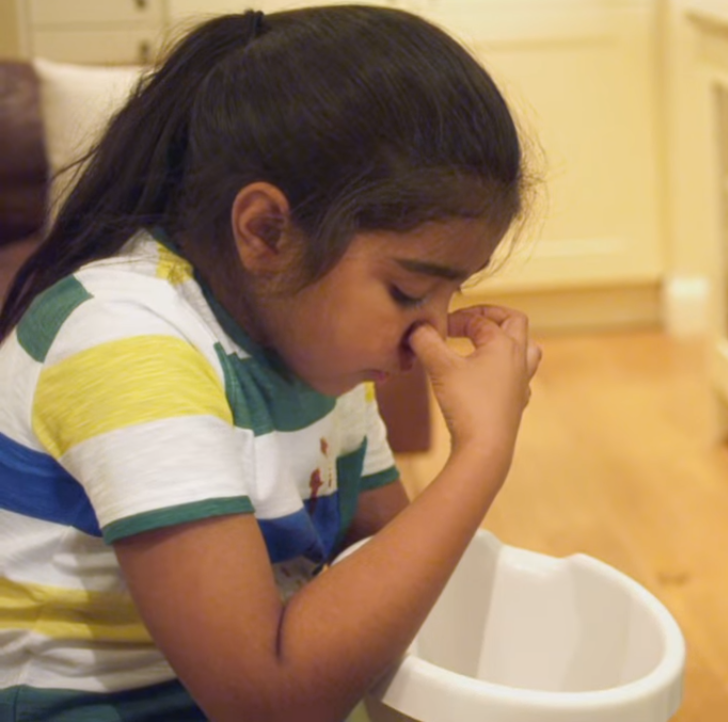A nosebleed is when blood flows from one or both nostrils. It’s normally caused by the tiny blood vessels inside the nostrils being ruptured.
Common causes of nosebleeds include a blow to the nose, sneezing, picking or blowing the nose, and high blood pressure.
What to look for
Most nosebleeds are minor and only last a few minutes, but they can be dangerous if someone loses a lot of blood.
If someone has had a blow to the head, the blood may appear thin and watery. This could mean that their skull is fractured and fluid is leaking from around the brain. If that happens, it is very serious and you should call 999 or 112 for emergency medical help.
What to do
If someone is having a nosebleed, your priority is to control the bleeding and keep their airway open.
Get them to sit down (not lie down) as keeping the nose above the heart will reduce bleeding.
Get them to lean forward (not backward), to make sure the blood drains out through their nose, rather than down their throat which could block their airway.
Ask them to breathe through their mouth and pinch the soft part of the nose, taking a brief pause every ten minutes, until the bleeding stops.
Encourage them not to speak, swallow, cough, spit or sniff because this may break blood clots that may have started to form in the nose.
If the bleeding is severe, or if it lasts more than 30 minutes, call 999 or 112 for medical help.
